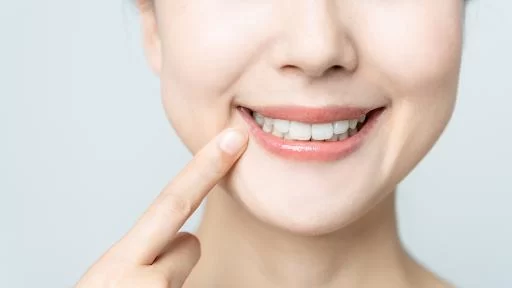
The Connection Between Oral Health and Mental Health
- 1. The Link Between Oral Health and Mental Health
- 2. Mental Health's Impact on Oral Care
- 3. How Poor Oral Health Affects Mental Well-Being
- 4. How to Improve Both Oral and Mental Health
1. The Link Between Oral Health and Mental Health
Research has shown a strong connection between oral health and mental health. Poor oral hygiene can lead to dental problems such as cavities, gum disease, and tooth loss, all of which can significantly impact an individual’s mental well-being. People with dental issues often experience low self-esteem and may feel embarrassed or anxious about their appearance, leading to social isolation and depression.
Conversely, mental health problems like anxiety, depression, and stress can affect oral health. Individuals dealing with these issues may neglect their oral hygiene routines or develop habits such as teeth grinding, which can lead to dental damage. This cycle highlights the importance of taking a holistic approach to health that addresses both oral and mental health.
2. Mental Health's Impact on Oral Care
Mental health disorders can have a direct impact on oral health. For instance, people suffering from depression or anxiety might not prioritize regular brushing, flossing, or dental visits. They may feel too fatigued or overwhelmed to care for their teeth, which can result in plaque buildup, cavities, and gum disease.
Additionally, stress can lead to habits like teeth grinding or jaw clenching, which can cause tooth wear, fractures, and jaw pain. People with eating disorders may also experience damage to their teeth due to frequent vomiting, which exposes the enamel to stomach acids. Understanding the impact of mental health on oral care is crucial for both preventing and treating oral health issues.
3. How Poor Oral Health Affects Mental Well-Being
Poor oral health can have significant negative effects on mental well-being. Chronic dental pain, tooth loss, or bad breath can lead to embarrassment, social withdrawal, and low self-esteem. Many individuals with dental problems may also experience feelings of helplessness or frustration, especially if they feel their oral health is out of their control.
Furthermore, the physical discomfort associated with oral health issues can contribute to anxiety and stress, creating a vicious cycle. As people with dental problems may avoid seeking professional care due to fear of judgment or cost, the mental strain can intensify, further affecting their overall mental health.
4. How to Improve Both Oral and Mental Health
To break the cycle of poor oral and mental health, it's essential to adopt strategies that improve both. Practicing good oral hygiene by brushing twice daily, flossing, and visiting the dentist regularly can prevent dental issues that may negatively impact self-esteem. Additionally, addressing mental health issues through therapy, counseling, or medication can reduce anxiety, depression, and stress that affect oral care routines.
It’s also important to create a balanced lifestyle that promotes both mental and oral well-being. This includes stress management techniques such as mindfulness, exercise, and healthy eating. By making these practices part of a daily routine, individuals can improve their overall quality of life, boosting both their mental and oral health.







 Westgate Dental Arts3.0 (2 review)
Westgate Dental Arts3.0 (2 review) Coventry Family Dental4.0 (247 review)
Coventry Family Dental4.0 (247 review) Familia Dental3.0 (1028 review)
Familia Dental3.0 (1028 review) Dr. Daniel S. Fife, DDS4.0 (31 review)
Dr. Daniel S. Fife, DDS4.0 (31 review) Dentistry At Suburban Square: Michael I. Wollock, DMD4.0 (1228 review)
Dentistry At Suburban Square: Michael I. Wollock, DMD4.0 (1228 review) Comfort Care Dental4.0 (1156 review)
Comfort Care Dental4.0 (1156 review) The Importance of Oral Health Education During Pregnancy for a Healthy Pregnancy
The Importance of Oral Health Education During Pregnancy for a Healthy Pregnancy Why Skipping Dental Checkups Can Lead to Bigger Oral Health Problems
Why Skipping Dental Checkups Can Lead to Bigger Oral Health Problems Best Tips for Brushing Your Teeth Properly for Healthy Gums: Essential Techniques for Oral Health
Best Tips for Brushing Your Teeth Properly for Healthy Gums: Essential Techniques for Oral Health Advantages of Porcelain Dental Restorations
Advantages of Porcelain Dental Restorations How Can Diabetes Cause Tooth and Gum Problems? Preventing and Managing Oral Health Issues
How Can Diabetes Cause Tooth and Gum Problems? Preventing and Managing Oral Health Issues Healthy Habits for Promoting Good Oral Health and Hygiene: Tips for a Healthy Smile
Healthy Habits for Promoting Good Oral Health and Hygiene: Tips for a Healthy Smile